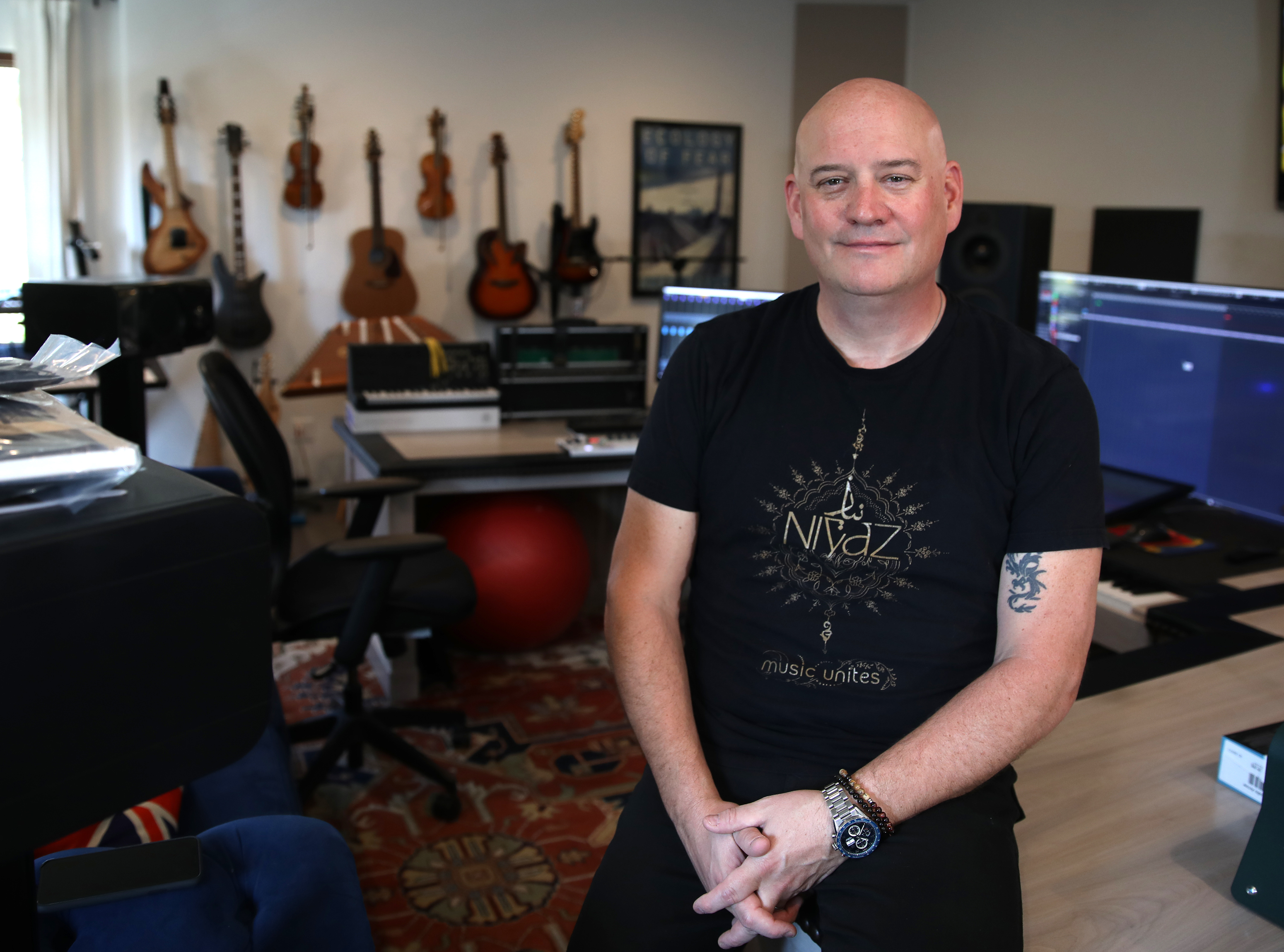Trevor Morris’s Scoring Success
Composer Creates Music for Film and TV in Hope Ranch Studio

Early in Jason Wise’s new documentary The Delicacy, the story shifts from the present in Santa Barbara to a similarly ritzy beach town in 1941. The delicacy of the film’s title is sea urchin, and it turns out that sea urchins were a mainstay of the banquet culture in Pompeii right up until the eruption of Mount Vesuvius in 79 CE. We know this because archaeologists digging there found remains of urchin species from all over the Mediterranean, confirming that “the delicacy” has been a part of the human diet for millennia.
As the voiceover narration reaches the volcanic destruction of Pompeii, the film’s score makes a subtle yet powerful shift. The steady heartbeat pulse of the music accelerates, and a slight flourish of percussion underlines the narrator’s description of the city’s ghastly fate. It’s barely noticeable, yet this deft orchestral touch turns what might have been an anticlimax — there’s no action footage of the volcano erupting — into a uniquely tender and compelling moment.
This and many other such crafty emphases in music are the work of Trevor Morris, a prolific composer of film and television scores who makes his home and his studio here in Santa Barbara. A wine lover and a knowledgeable appreciator of all things culinary, Morris met filmmaker Wise back when he was making Somm 3, the third in his series of hit films about the elite palates of the wine world. Morris has been living in Santa Barbara since 2014, when he left Los Angeles to pursue his dream of writing music and raising a family in a private studio far from the hectic, “everybody’s in showbiz” world of greater L.A.

With two Emmy Awards already in hand and a work calendar that’s booked solid well into the 2020s, Morris enjoys an enviable position in the highly competitive field of film scoring. He’s probably best known at this point for television series like Vikings, The Tudors, and Another Life, but his passion for wine and his partnership with Wise has him poised to conquer another hot market — the one for culinary documentaries.
I visited Morris at his studio in Hope Ranch on a beautiful recent Friday, and our wide-ranging conversation left me impressed with the man, the music, and his uncommon talent for telling stories in multiple media. When asked if he had a distinctive personal style, Morris humbly admitted that people who know him and his work “might be able to tell” that he had written a particular score, adding that beyond what he called a “love of the alchemy of music and image,” he is driven by his passion for telling stories, which he described this way: “The director will use a lens to tell the story; an actor will use their voice and their face; a screenwriter will write the written word. I use notes. We’re all doing the same job in an interesting way from different perspectives. Mine just happens to be the language of music.”
His reflections on the art of presenting and describing his work to the filmmakers who hire him were most interesting. Even after surmounting the nerve-racking moment when he and the director listen to a first draft together, Morris puts a lot to effort into finding an appropriate vocabulary for continuing the collaboration. He prefers not to use technical terms from music composition. He employs a personal grab bag of adjectives for certain moods or effects instead. For example, some chords are “rusty,” while others are “chewy.”
Even when the director is also a musician, Morris said he sticks to plot and point of view rather than looking at the musical notation. “If you play a piece of music and you’re not really sure what story we are telling in the scene,” he said, “then you can dig a little deeper and find out that of the two characters, its more about her point of view than his.” This kind of dialogue allows him to move forward, whereas, “You’d never get that by talking about G minor or C sharp, right?” he said.




You must be logged in to post a comment.